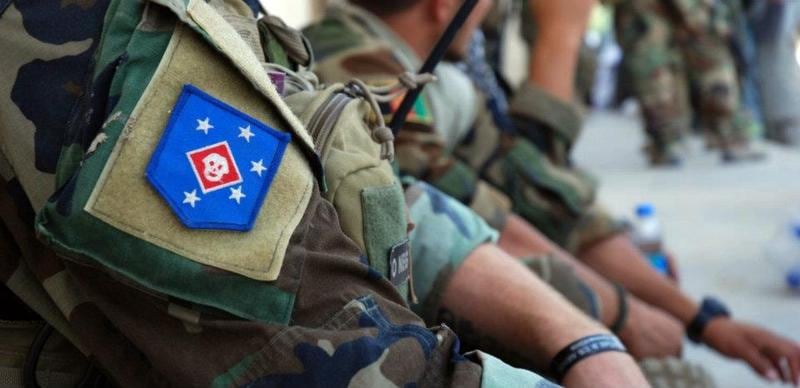As far as Nick Koumalatsos is concerned, MARSOC operators were Raiders all along.
Koumalatsos left Marine Corps Forces Special Operations Command as a staff sergeant in 2012, only to later become the director of an organization designed to meet the needs of transitioning MARSOC troops. Its name: The Raider Project.
Still well-connected with the MARSOC community, Koumalatsos said he learned that the command was changing its name to honor the famed Marine Raiders of World War II well before the commandant's Aug. 6 announcement. It has been a long time coming, he said.
"It should have been done several years ago," he said.
Like many MARSOC operators, Koumalatsos sported a classic Raider patch emblazoned with a skull on his uniform while he was deployed.
Though the patch wasn't authorized for wear, he said it symbolized the passing of tradition and an identity more specific than his Marine Corps heritage.
"I wouldn't say [wearing the Raider patch] was in defiance; I would say it was just kind of us being who we were throughout our history," he said.
The question of identity dominated deliberations over MARSOC's name. When Amos turned down a proposal to rename MARSOC for the Raiders in 2011, he appealed to the universal loyalty all Marines have to the Corps, "based on the title you have on your uniform."
MARSOC officials emphasized another loyalty of sorts, saying the decision to reflag in honor of the Raiders would further connect Marines in the command to their Marine Corps pedigree and heritage.
"Yeah, we are Marines," Koumalatsos said. "But you can't take a Marine and fill a Raider's shoes in the blink of an eye. There's something else."
After making it through MARSOC's rigorous assessment and selection process, the nine months of special operations training in the individual training course — to finally become a critical skills operator, Koumalatsos said it felt like a "slap in the face" when senior officers reminded operators they weren't more special or elite than the average Marine.
Having some token of distinction like the Raiders name would help build the identity of MARSOC as a unit, not just within the operators community, one Marine said.
"MARSOC kind of needs this," said a current MARSOC CSO and noncommissioned officer, who spoke with Marine Corps Times on the condition of anonymity. "Marines don't typically know what MARSOC does. SEALs, Green Berets, they all have an identity. MARSOC is having an identity crisis."
The Marine said he was referring to ongoing recruiting challenges and MARSOC's ongoing efforts to develop name recognition and a brand within the greater Marine Corps. MARSOC officials recently disclosed plans to revamp the MARSOC recruiting website with new information about training and the life of a MARSOC operator, in efforts to draw more Marines toward what has been a very closed off community.
In the celebration of the Raiders name, Marines said they were cognizant too of the elite group of World War II heroes whose memory they honored.
Both activated in 1942, 1st and 2nd Marine Raider Battalions quickly took on the identity of their iconic leaders as they executed high-risk special operations missions behind enemy lines in the Pacific.
1st Marine Raider Battalion, led by Col. Merritt Edson, who would receive the Medal of Honor for bravery at Guadalcanal, would become Edson's Raiders, and 2nd Marine Raider Battalion, led by Lt. Col. Evans Carlson, who would coin the term "Gung Ho," became Carlson's Raiders.
According to the Marine Raider Association and Foundation, the Raiders together earned seven Medals of Honor, 136 Navy Crosses, and 330 Silver Stars.
One of Carlson's Raiders was Ellis Childers, a sergeant who saw combat in rubber boats on Makin Island, fought at Guadalcanal, and was in the first amphibious assault wave at Iwo Jima, said his son, Mark. Childers said he knew his father, who died in 2011 at 91, would be thrilled to see the Raiders legacy brought back to life in the Marines' current special operations unit.
"He loved the Marine Corps and was very proud to be one of Carlson's Raiders," Childers said. "I'm pretty sure he'd think that would be pretty cool."





